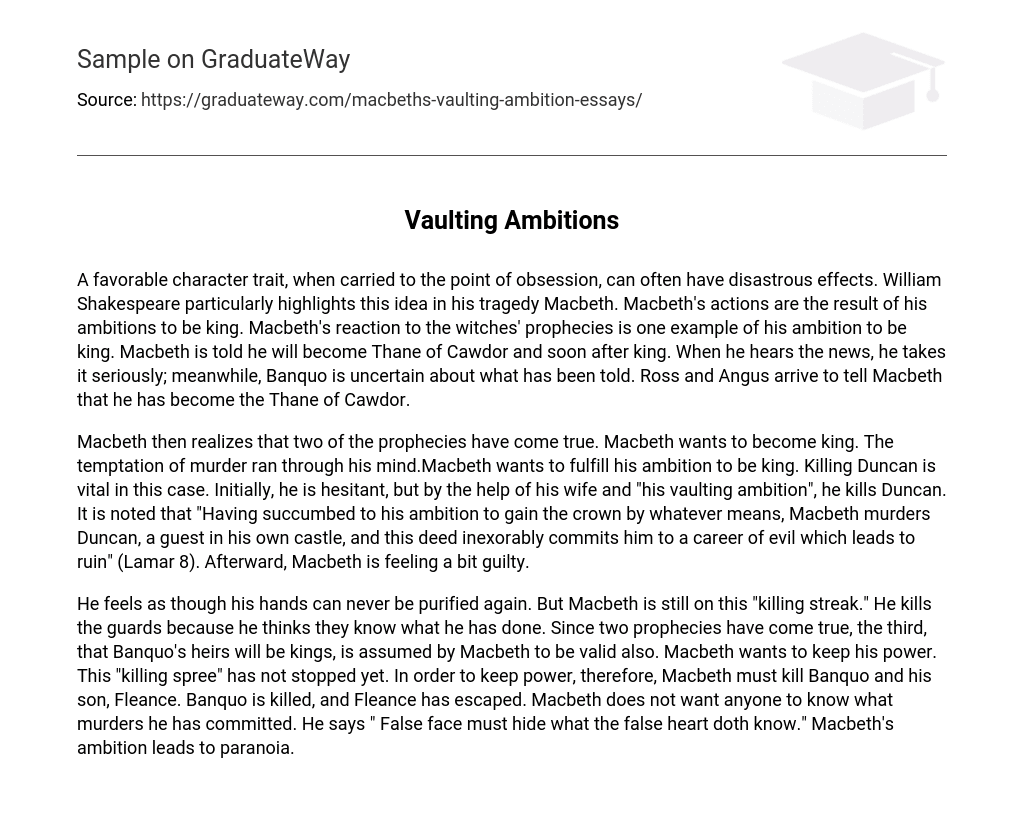A theme Shakespeare explores in his tragedy Macbeth is the potentially disastrous consequences of an excessive obsession with a favorable character trait. Macbeth’s desires to be king drive his actions throughout the play. His ambitious nature is evident in his response to the witches’ prophecies, which foretell his future as Thane of Cawdor and eventually as king. Macbeth takes these prophecies seriously, while his companion Banquo remains unsure. Macbeth’s ambition is further fueled when Ross and Angus inform him that he has indeed become the Thane of Cawdor.
Macbeth realizes that two of the prophecies have come true and he becomes tempted by the idea of murdering to become king. His ambition drives him to kill Duncan, with the help of his wife. Although hesitant at first, Macbeth’s ambition pushes him to commit the murder. Unfortunately, this act leads him down a path of evil and eventual downfall. It is later noted that Macbeth’s ambition leads him to murder Duncan, a guest in his own castle, ultimately leading to his ruin (Lamar 8). Macbeth is left feeling guilty after the murder.
Despite feeling like his hands can never be cleansed again, Macbeth continues his streak of killings. He murders the guards because he believes they are aware of his actions. Having already witnessed two prophecies come true, Macbeth assumes that the third one, which predicts Banquo’s descendants becoming kings, is also valid. Driven by his desire to maintain power, Macbeth’s killing spree is far from over. To secure his position, he must eliminate Banquo and his son Fleance. Although Banquo is killed, Fleance manages to escape. Determined to conceal his murderous acts, Macbeth declares, “False face must hide what the false heart doth know.” Consequently, Macbeth’s ambitions lead him into a state of paranoia.





